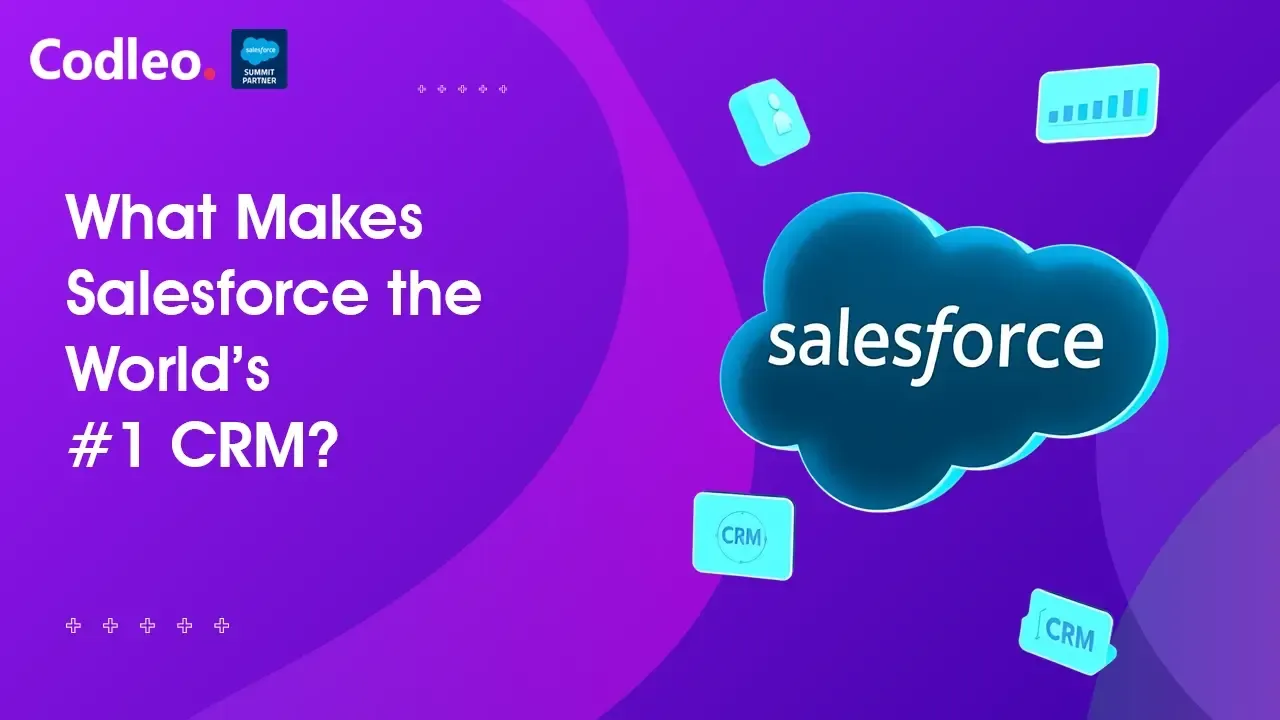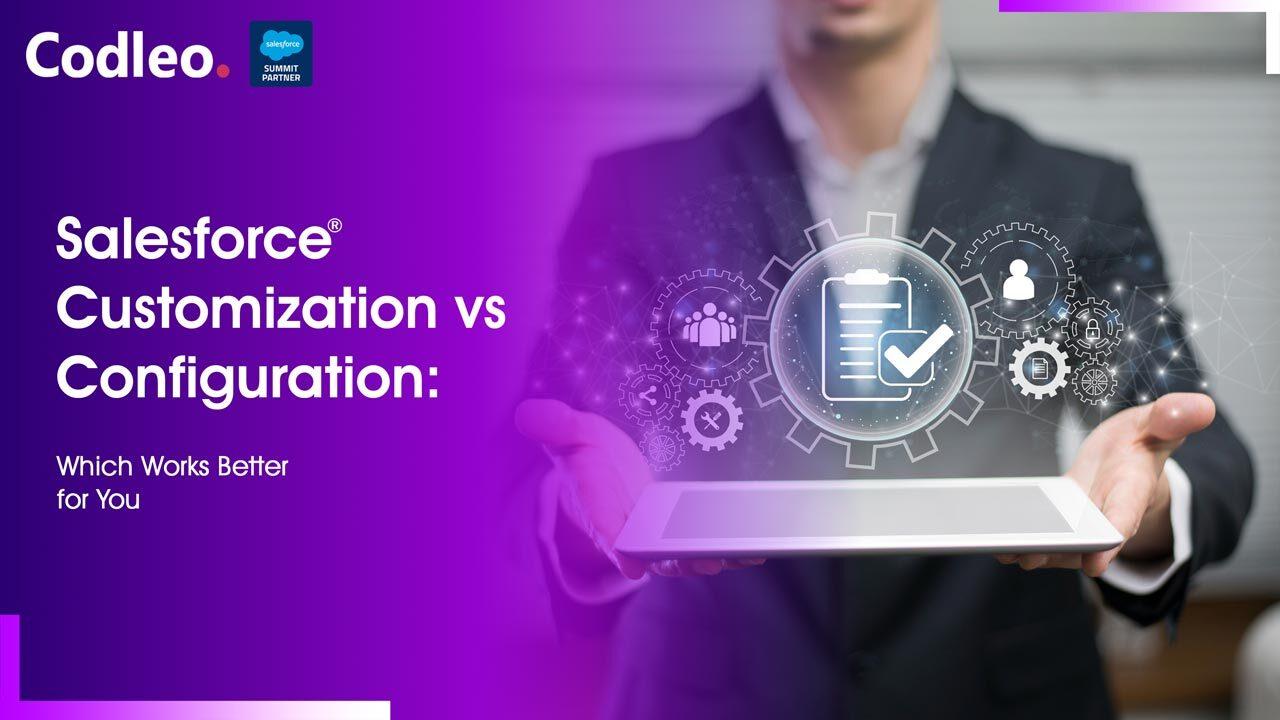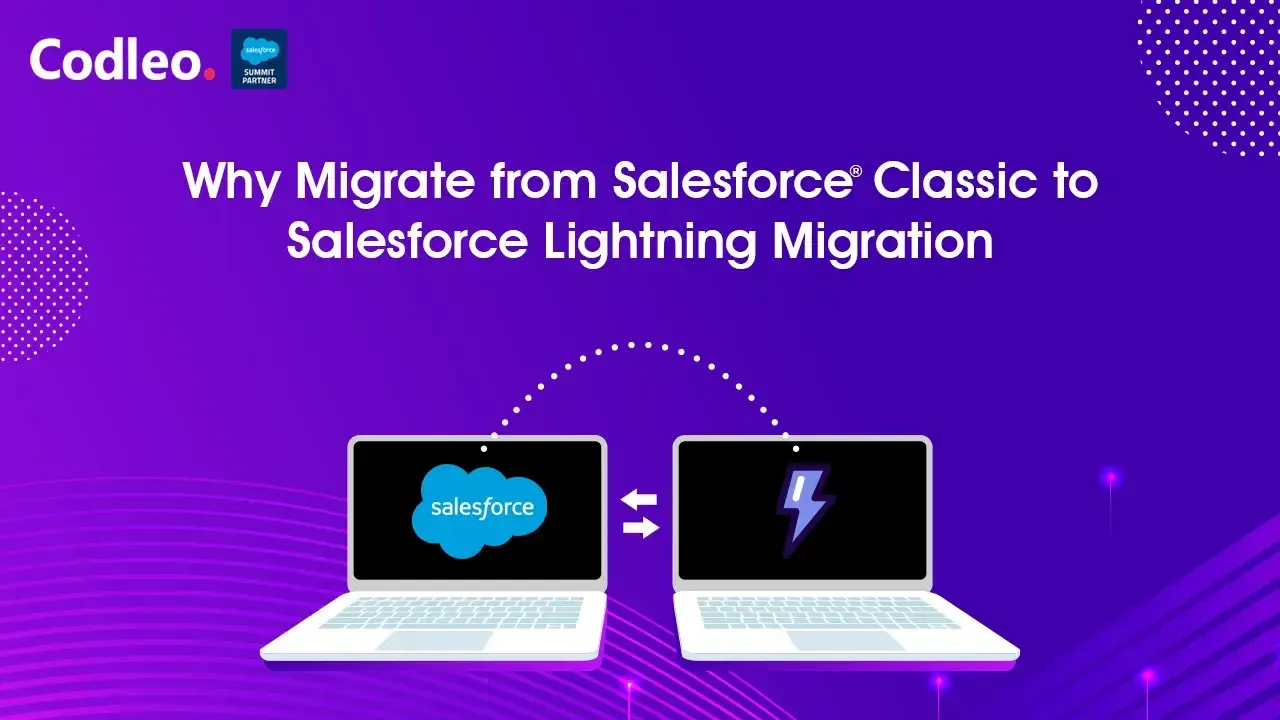Publish date:
Salesforce Consultants are essential in establishing and customizing Salesforce solutions to match their clients' demands, ensuring the platform is efficient, scalable, and adaptable to different company operations. When Salesforce is combined with the experience of a consultant, it becomes a powerful, tailored tool for businesses.
These consultants represent the service side of Salesforce's partner ecosystem, providing strategic guidance and hands-on support. They may work for Salesforce Consulting Partners (sometimes called Solution Integrators), agencies, or as independent contractors. This handbook will explain their obligations at each point of their journey.
Salesforce Consultant Roles and Responsibilities
A Salesforce Consultant's responsibilities might range from configuration tasks to work that needs emotional intelligence, such as obtaining requirements or staying on track with a project. With seniority, consultants will become more involved throughout the project lifecycle but less hands-on with configuration.
What does a Salesforce consultant do? Let's define 'entry-level, mid-level, and senior' consultants.
-
Entry-level consultants have 0-1 years of experience. Often referred to as a 'build' consultant. A supporting role in which configuration chores are delegated by other team members depending on specific requirements with Salesforce's most common features (for example, field configuration). These consultants spend a significant amount of time observing and learning.
-
Mid-level: 1–3 years of experience. Lead small projects, design solutions, and conduct requirements gathering/client workshops.
-
Senior Consultant: Three or more years of experience. The subject matter expert is sometimes called a 'lead consultant' or 'delivery director.' They work on "big picture" solution design, which may involve several integrated systems.
Salesforce initiatives are an art form, with various aspects weighing in to determine whether a project will succeed or fail. Organizations will not trust just anyone with access to their Salesforce org (the 'beating heart' of their operations), so they will seek consultants with various abilities, including soft skills.
Functional versus Technical Salesforce Consultants
You might hear the terms 'functional Salesforce consultants' and 'technical Salesforce consultants.' Functional consultants are declarative (low-code) professionals specializing in the project's 'business' aspects, such as business analysis. Technical consultants are experienced coders with a background in development. While their roles and responsibilities differ in some respects, there is significant overlap.
What do entry-level Salesforce consultants do?
As a junior Salesforce Consultant, you'll implement and continuously enhance your clients' Salesforce org, usually under the supervision of experienced Salesforce Consultants and specified specifications; your ultimate goal will be to watch and learn from their processes. Tasks may include:
-
Configuration based on specific requirements using Salesforce's most common capabilities (for example, field configuration, Salesforce Flow).
-
Building Salesforce reports and custom report kinds based on requirements.
-
Learn about the tools used by your consultant to support your task.
-
Develop rapport with the client-side project team.
-
Testing configuration against various business scenarios and/or supervising UAT (user acceptance testing).
-
Simple data migration and cleanup.
-
Documented the implemented solutions and provided user training.
Here are some resources to help you learn more about what you should do to become a Salesforce Consultant and what this career looks like:
-
How to Become a Salesforce Consultant – The Next Step in Your Career Path
-
A Day in the Life of a Salesforce Consultant
-
30 Salesforce Consultant Interview Questions & Answers
Progress to a Mid-Level Salesforce Consultant.
You'll be classified as a mid-level consultant with 1-3 years of experience and the correct approach.
You'll either execute "quick start" projects independently (with a limited scope and predictable chores) or work on projects that go beyond "cookie-cutter" implementations. At this point, you can work independently and feel comfortable interacting with clients. You will be using a variety of documents and resources.
Tasks may include:
-
Presales engagement requires a consultant to gather and confirm a potential client's requirements using Salesforce products and simple connectors.
-
Be able to gather requirements independently and conduct business analysis to comprehend the 'current condition thoroughly.'
-
Familiarity with standard Salesforce integrations, including their effort and risk.
-
Salesforce solution design focuses on automation, custom objects, and data linkages.
-
Configuration activities for more unusual Salesforce features (e.g., Revenue Schedules) are riskier (e.g., sophisticated Salesforce Flows) and require Salesforce best practice knowledge to execute (i.e., they may not have been detailed for you). Your work entails outlining specific needs for an entry-level construction consultant.
-
Use Salesforce's declarative functionality to the fullest extent possible (and notify Salesforce Developers when requirements exceed them).
-
The driving factor behind analytics is determining which reports clients should prepare to assess their progress and which reporting platform to employ.
-
Stakeholder management for client relationships and projects for which they are responsible.
-
Create (or assist with) a project plan. Work towards completing the project on schedule and under budget.
-
Complex data migrations.
-
Overseeing deployments.
To advance from junior consultant to mid-level position, perform the following:
-
Understand what questions to ask a client to understand their present state thoroughly. With practice, you'll be able to pick up on subtle signals shared by the client that will lead to additional questions (and know which questions to ask to elicit the information, if necessary).
-
Knowing which choice to select in each scenario in terms of automation, custom objects, and data linkages is essential for solution design. For example, should I construct a custom object to meet this client's needs? Should this procedure be implemented with Apex, or can we do it in Flow?
-
Find an inside mentor, typically a consultant whom you work with daily. Question everything!
-
Understand the mechanics of a Salesforce project, including which components come first, what the client requires, and projected deadlines.
-
Develop a strong understanding of the project manager's position (or project management concepts).
-
Conduct project debriefs after each client project to reflect on what went well and where things went wrong.
What Senior Salesforce Consultants Do
You will be responsible for all project stages as a Senior Salesforce Consultant. While you will not be as involved in configuration, you will have a 'helicopter' view of the project and ensure it is completed on time and under budget. As the subject matter expert, you will likely be able to manage (or establish) a team of consultants.
The senior Salesforce Consultant function (sometimes known as a 'lead consultant' or 'delivery director') begins to veer into Salesforce Architect territory, where the consultant and architect responsibilities intersect.
You will be expected to collaborate with client-side stakeholders from several business departments while serving as the client's escalation point. Responsibilities and tasks may include:
-
Presales engagement requires a consultant to gather and confirm a potential client's requirements across many Salesforce products and sophisticated integrations.
-
Collect requirements for cross-organizational transformation, including changes affecting various teams.
-
Conduct business analysis to understand the 'current condition thoroughly.'
-
"Big picture" solution design involving several integrated systems. Understand the considerations in solution design (and thus concepts in the Salesforce architect domain).
-
Control the system architecture and data model in project teams that do not include a Salesforce Architect.
-
Stakeholder management is extensive, with the client as the point of contact for escalations.
-
Oversee massive deployments and manage release cycles.
-
Detail a roadmap for future enhancements.
To become a Senior Salesforce Consultant, you need to:
-
Become a subject matter expert in Salesforce (generally or in a specific area of the Salesforce platform).
-
Understand and have worked with Salesforce integrations and their ramifications.
-
Participate in challenging projects with integrations whenever possible, as you will be asked to lead them in the future.
-
Delegate effectively and possess the traits of a leader.
What about Salesforce Freelance Consultants?
Salesforce Freelancers, often known as "independent consultants," are self-employed individuals who work for a Salesforce customer company on a project basis for a set period.
While the money is higher, working as an independent consultant may not be for you. These guides will help you determine if it's a good fit.
Stages of a typical Salesforce project
Discovery
Learn about the prospective client's business by asking questions about its operations and issues. It is called "presales" before the client signs on the dotted line.
Design
After gathering requirements, consultants create a scope of work that details the effort required while accounting for any expected hazards. For more complicated projects, this might also include mapping out processes and integrations to determine how they will interact with one another.
Development
When configuration activities are performed within an agreed-upon time frame, construction begins.
Testing
Processes are tested from a user's perspective, using various scenarios to ensure that criteria are met and no errors are discovered. Project stakeholders (or selected users) test the processes to satisfy expectations.
Deployment And Training
The updates, including data migrations, are deployed to the client's production environment. End users receive training on how to use their new Salesforce organization.
Summary
Salesforce Consultants are essential in helping organizations customize Salesforce to meet their specific requirements. Their expertise enables businesses to streamline processes, improve scalability, and boost efficiency through effective implementation and optimization.
Whether working for a consulting business, agency, or independently, Salesforce Consultants give customers vital strategic advice and hands-on support at every point of their Salesforce journey. As businesses become more reliant on Salesforce, the demand for qualified consultants grows, making it a rewarding job with a clear route to advancement.
















